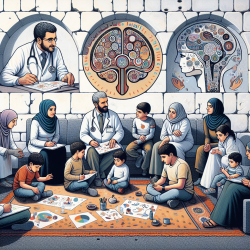Introduction
Female genital fistula, a devastating condition often resulting from prolonged obstructed labor, has profound physical, psychological, and socio-economic impacts on affected women. While surgical repair is crucial, the journey to full recovery extends beyond the operating table. The recent systematic scoping review titled "Rehabilitation and reintegration programming adjunct to female genital fistula surgery" offers valuable insights into holistic care approaches that can significantly enhance outcomes for these women.
Understanding Holistic Reintegration Programming
The review underscores the importance of integrating comprehensive rehabilitation and reintegration services alongside surgical interventions. Such programs typically encompass:
- Health Education: Educating patients about their condition, self-care, and preventive measures.
- Physical Therapy: Aiding in the physical recovery process and improving mobility and strength.
- Psychosocial Counseling: Addressing mental health issues and providing emotional support.
- Social Support: Facilitating community reintegration and reducing stigma.
- Economic Empowerment: Offering skills training and financial support to enhance economic independence.
Key Findings and Implications for Practice
The review highlights several key findings that practitioners can leverage to improve patient outcomes:
- Improved Physical and Psychosocial Health: Programs that combine physical therapy and psychosocial support have shown significant improvements in patients' overall well-being.
- Holistic Care is Essential: Integrating multiple support services creates a more robust recovery framework, addressing the multifaceted needs of fistula patients.
- Standardized Outcomes Needed: The review calls for standardized outcome measures across studies to better evaluate program effectiveness and guide future interventions.
Encouraging Further Research
While the review provides a comprehensive overview, it also identifies gaps in the current literature, emphasizing the need for:
- Robust Study Designs: Implementing well-structured research methodologies to strengthen the evidence base.
- Detailed Reporting: Enhancing the detail and transparency of program descriptions and outcomes.
- Increased Funding: Advocating for more financial support to develop and sustain holistic care programs.
Conclusion
For practitioners, the insights from this review can inform the development of more effective rehabilitation and reintegration programs, ultimately leading to better outcomes for women recovering from genital fistula surgery. By adopting a holistic approach and contributing to further research, practitioners can play a pivotal role in transforming the lives of affected women.
To read the original research paper, please follow this link: Rehabilitation and reintegration programming adjunct to female genital fistula surgery: A systematic scoping review.










